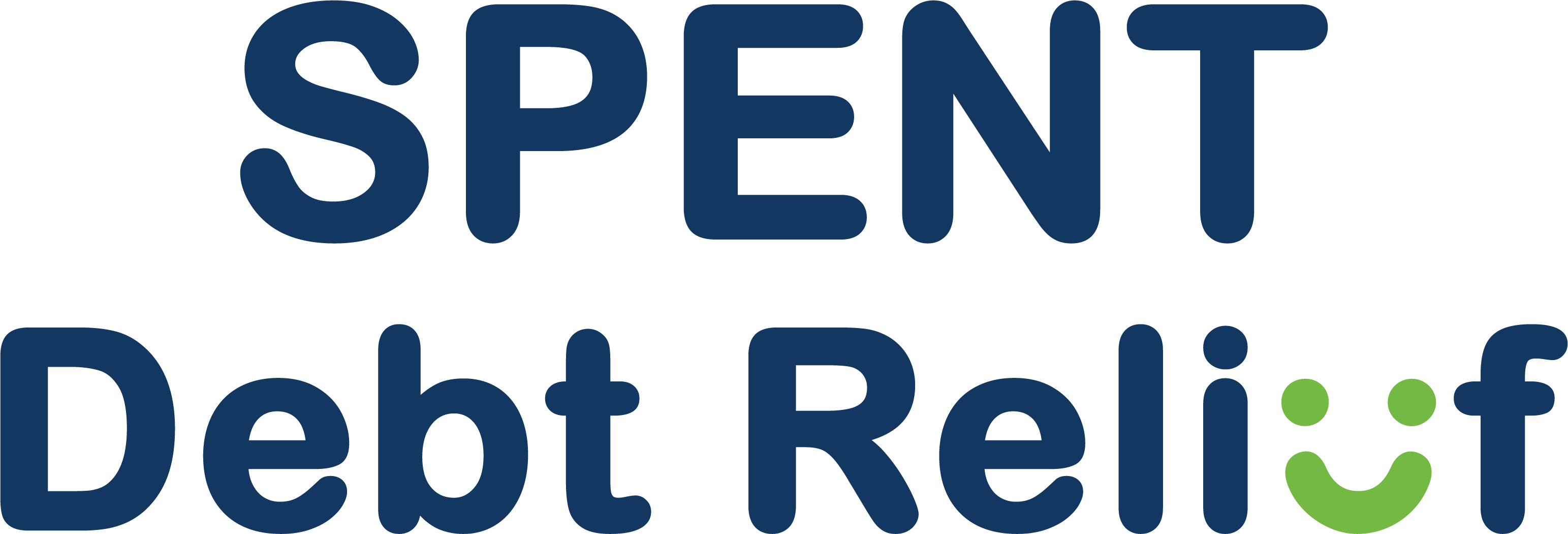Dealing with overwhelming debt can be a tremendous burden, impacting your financial well-being and overall quality of life. However, there are solutions available to help you regain control of your finances. In this comprehensive blog post, we’ll explore two popular debt relief options: debt consolidation and debt settlement. Understanding the differences between these approaches will empower you to make informed decisions on the path toward financial freedom. At SPENT Law Group, we’re here to guide you through this journey with experienced advice and support.
Ready to take the first step towards financial freedom? Contact SPENT Law Group today at (855) 332-8457 and schedule your free consultation with one of our debt settlement lawyers. Let us help you explore your options and find the debt relief solution that’s right for you. Don’t let debt control your life any longer—reach out and reclaim your peace of mind.
Debt Consolidation
Debt consolidation is a strategy that combines multiple debts into a single, manageable payment. With debt consolidation, you take out a new loan to pay off your existing debts. This loan typically carries a lower interest rate, allowing you to save money on interest payments over time.
Here are a few key points to consider:
- Streamlined Payments: By consolidating your debts, you simplify your monthly payments, reducing the chances of missing due dates and incurring late fees. This can alleviate the stress and confusion of managing multiple payments each month.
- Lower Interest Rates: With debt consolidation, you may qualify for a lower interest rate on the consolidation loan. This can result in significant savings over time, as more of your payment goes towards reducing the principal balance rather than interest. This option is especially beneficial if you have high-interest credit card debt.
- Extended Repayment Term: Debt consolidation often extends the repayment term, which can lower your monthly payments, making them more affordable. This can provide some breathing room in your budget and allow you to manage your debts more comfortably.
| Debt Consolidation Keypoints | Description |
|---|---|
| Streamlined Payments | Consolidating debts simplifies monthly payments, reducing the chances of missing due dates and incurring late fees. |
| Lower Interest Rates | Debt consolidation may qualify for a lower interest rate on the consolidation loan, resulting in significant savings over time. |
| Extended Repayment Term | Debt consolidation often extends the repayment term, lowering monthly payments and providing more breathing room in the budget to manage debts comfortably. |
Debt Settlement
Debt settlement is a negotiation process aimed at reducing the total amount of debt you owe. In debt settlement, you work with a debt relief company like SPENT Debt Relief to reach an agreement with your creditors to settle your debts for less than the full amount owed.
Here’s why debt settlement can be a better option:
- Negotiated Settlements: Through skilled negotiation, your debt relief attorney will work on your behalf to reach a settlement with your creditors, aiming to reduce the overall debt amount. This can lead to significant savings, allowing you to pay off your debts faster and more affordably.
- Single Lump-Sum Payment: In most cases, debt settlement requires you to make a lump-sum payment to settle the debt. This payment is typically less than the original debt owed. By negotiating a reduced settlement amount, you can resolve your debts for less and potentially become debt-free sooner.
- Potential Credit Impact: It’s important to note that debt settlement may have a negative impact on your credit score, as it involves not paying the full amount owed. However, once your debts are settled, you can begin rebuilding your credit over time. With responsible financial habits and timely payments on other debts, you can gradually improve your credit score and work towards a stronger financial future.
Is It Better to Settle Debt or Consolidate Debt?
On the other hand, debt settlement can provide an escape hatch by allowing you to pay less than the full amount owed. It’s a route that can sidestep bankruptcy and quickly cut down your debt, but it comes with significant credit score damage. Settling debt requires negotiating with creditors who are not obligated to agree to your terms or reduce your debt. Plus, you’ll need accessible funds to cover the settlement amounts, which is a barrier for many.
So, which is better? If you can manage a single monthly payment and possibly lower your interest rates without risking valuable assets, debt consolidation is often the preferable path. It’s less harmful to your credit score and can streamline your path to becoming debt-free. However, if you’re facing insurmountable debts and possess the necessary funds, settling may provide a quicker resolution, albeit with more considerable credit implications. Ultimately, the decision should be based on your financial capacity, risk tolerance, and long-term financial goals.

Getting the Legal Help Of SPENT Law Group
When considering debt relief options, it’s crucial to weigh the benefits of debt consolidation and debt settlement. While debt consolidation offers streamlined payments, lower interest rates, and extended repayment terms, debt settlement can provide the opportunity for significant savings through negotiation. Ultimately, the right choice depends on your specific financial situation. You can explore more debt relief options here. At SPENT Law Group, our team of debt settlement lawyers may be able to assess your circumstances and guide you toward the best debt relief option for your needs. Contact us today at (855) 332-8457 to schedule a consultation.
When facing mounting debts, choosing between debt settlement and debt consolidation is crucial. Debt consolidation simplifies your financial situation by combining multiple debts into a single loan with one monthly payment, potentially at a lower interest rate. This can reduce stress and may lower your total monthly outlay if the consolidation loan’s terms are favorable and fees are minimal. It’s important to consider that secured consolidation loans, like home equity loans, put assets at risk if you default.

